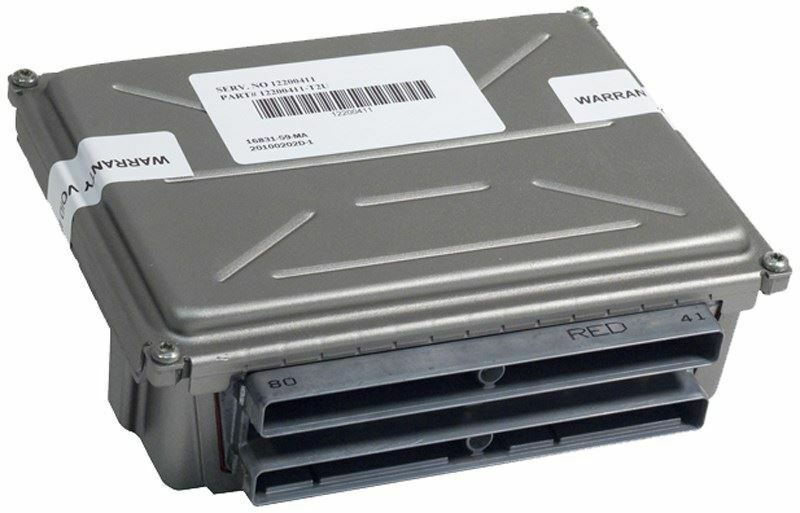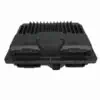Restore Peak Performance to Your 1998 Pontiac Grand Prix
Is your 1998 Grand Prix suffering from mysterious and frustrating issues like a persistent check engine light, erratic idling, poor fuel economy, or harsh transmission shifts? These are classic symptoms of a failing Powertrain Control Module (PCM), the central computer that governs your vehicle’s engine and transmission. A faulty PCM can make your car unreliable and frustrating to drive. This replacement Powertrain Control Module is the definitive solution, engineered to restore your vehicle’s original performance and reliability.
This isn’t just a generic, off-the-shelf part. We take your vehicle’s unique Vehicle Identification Number (VIN) and program the module with the very latest GM factory software updates. This critical step ensures that all parameters for fuel delivery, ignition timing, emissions controls, and transmission operation are perfectly matched to your car. The result is a seamless, plug-and-play installation that resolves complex electronic issues without requiring a trip to the dealership for expensive programming.
From the Diagnostic Bay
We recently had a 1998 Pontiac Bonneville (which uses a similar PCM) come into the shop with a no-start condition that had stumped two other mechanics. The owner had replaced the fuel pump, crank sensor, and ignition control module with no success. After hooking up our diagnostic scanner, we noticed that while the PCM had power, it wasn’t sending the command to fire the fuel injectors. All sensor inputs were correct. We installed one of our VIN-programmed PCMs, performed the quick security relearn, and the engine fired up on the first try. It’s a powerful reminder that the PCM is the true ‘brain’ of the operation, and when it fails, it can mimic many other component failures.
Diagnosing a Failing 1998 Grand Prix PCM
A failing computer can manifest in numerous ways, often intermittently at first. If you’re experiencing any of the following, your PCM may be the culprit. This module is the key to resolving these common problems and getting your vehicle back to factory specifications.
- ✔ Check Engine Light: The most common symptom, often with codes related to sensors, emissions, or internal module failure.
- ✔ Poor Engine Performance: Noticeable loss of power, hesitation during acceleration, or a rough, unstable idle.
- ✔ Reduced Fuel Economy: The engine may run too rich or too lean, causing a significant drop in MPG.
- ✔ Transmission Shifting Problems: Hard or delayed shifts, or getting stuck in one gear, as the PCM also controls transmission logic.
- ✔ Intermittent or Complete No-Start: The PCM may fail to control the fuel pump or spark, preventing the engine from starting.
- ✔ Stalling for No Reason: The vehicle may stall unexpectedly while driving or when coming to a stop.
- ✔ Failed Emissions Test: A malfunctioning PCM can prevent the emissions system from operating correctly, leading to a failed smog check.
This module is a direct replacement for multiple GM service numbers, including 09356741, 16236757, 9357034, 9357440, and 9366314, ensuring wide compatibility across a range of GM vehicles from that era. By providing us with your VIN, you guarantee that the software loaded onto your replacement module is the correct and most current version for your specific vehicle, eliminating guesswork and ensuring a lasting repair.
Frequently Asked Questions
Why do you need my Vehicle Identification Number (VIN)?
Your vehicle’s VIN is essential for us to load the correct, vehicle-specific software from GM. This includes calibrations for the engine size, transmission type, emissions equipment, and any other factory options. Programming the module to your VIN makes the installation plug-and-play and ensures your vehicle operates exactly as the manufacturer intended.
Is this part difficult to install?
For most of the listed GM models, the PCM is located in an accessible spot, often in the engine bay inside the air filter box or on the firewall. Installation typically involves disconnecting the battery, unplugging the electrical connectors from the old module, removing a few bolts, and swapping in the new one. Most DIY mechanics with basic tools can complete the job in under an hour.
Will I need to perform a security relearn procedure after installation?
Yes, most GM vehicles from this era with a Passlock or Passkey anti-theft system will require a simple security relearn procedure after the new PCM is installed. This can be done without any special tools and usually involves turning the key to the ‘ON’ position for 10-15 minutes, then off, and repeating the cycle two more times. We include instructions for this simple procedure with your order.
What are the most common causes of PCM failure?
PCM failure can result from several factors, including age-related breakdown of internal electronic components, excessive heat, vibration over many years, or electrical damage from a short circuit elsewhere in the vehicle (like a bad ignition coil or faulty wiring).
Is this a new or used part?
This is a high-quality, inspected, and verified replacement part. Each module undergoes a thorough testing process to ensure it meets or exceeds original equipment standards. It is then programmed with the latest GM software for your specific vehicle.


